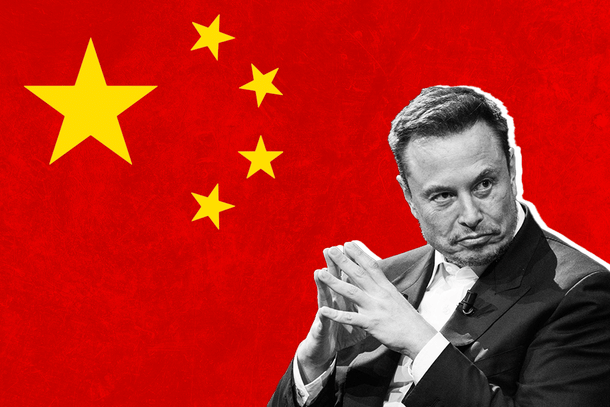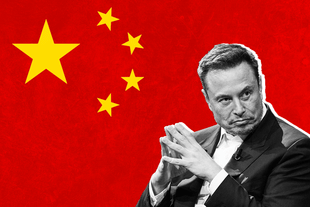Commentary
A Failed Truce, Price Bloodbath And Falling Sales — No End In Sight For Tesla's China Troubles
Amit Mishra
Apr 22, 2024, 05:41 PM | Updated 05:28 PM IST
Save & read from anywhere!
Bookmark stories for easy access on any device or the Swarajya app.


Amidst sobering sales numbers, Tesla faces another challenge: an escalating discount war in mainland China, its biggest market outside of the United States.
The discount war in China’s electric vehicle (EV) space picked pace on Monday when Li Auto, Tesla’s closest competitor in mainland China, announced price cuts of about 6-7 per cent across its line-up.
The steep price cut from the Beijing-based company closely follows Tesla's nearly $2,000 price drop for its vehicle range in China, which occurred on Saturday following similar reductions in the US.
BYD, the world's top-selling EV maker, fired the first salvo in February of this year by slashing prices on some models to counter falling sales. Since then, it has reduced prices on nearly all its cars by 5 to 20 per cent.
In fact, the Shenzhen-based carmaker, backed by Warren Buffett's Berkshire Hathaway, is currently offering discounts on nearly all its electric and hybrid car models as part of a marketing campaign promoting "electricity is cheaper than oil".
Following BYD's lead, many of its rivals such as Xpeng, Zeekr and Aion have also lowered prices on their best-selling models in the fiercely competitive market.
China has one of the fastest growing EV markets in the world with an estimated 500 electric car makers having piled into the world's largest vehicle market.
However, EV demand in the country has stumbled this year due to economic uncertainty and continuing woes in the property sector. Additionally, the end of subsidies, totalling about 12,000 yuan on EV purchases, has further impacted sales.
Electric car sales across the mainland plummeted by 31 per cent quarter-on-quarter reaching 1.76 million units in the three months ending March 31, as reported by the China Passenger Car Association (CPCA).
Put simply, the companies have been left with little choice but to offer discounts and engage in a price war to retain their market share.
A Failed Truce
Tesla triggered a price war in China by cutting prices in October 2022 on models produced at its factory on the outskirts of Shanghai.
Things escalated in January 2023 when Tesla cut prices again, making its locally made cars up to 14-50 per cent cheaper than in 2022. The move left rivals with little option but to follow suit with similar price cuts.
Following this, the China Association of Automobile Manufacturers (CAAM) urged carmakers to calm down the "price-cut hype" and encouraged the industry to operate normally for its well-being.
Subsequently in July 2023, Tesla and 15 of its Chinese rivals signed a letter of commitment to compete fairly in the country’s car market and avoid “abnormal pricing”. However, the industry body withdrew the commitment two days later, citing a breach of anti-monopoly laws.
Since then, Chinese carmakers have been reducing electric vehicle prices too quickly, risking a potential "bloodbath" in the industry.
Even seasoned observers familiar with China's fiercely competitive auto market have been surprised by the extent of the latest price cuts, with one expert noting that discounting has become “ultra intense” and reached “an astonishing level”.
It's evident that Tesla isn't likely to cease its price battles anytime soon.
Musk dropped a hint about this in last July when he told analysts that further price cuts could be on the horizon, asserting, "It does make sense to sacrifice margins to produce more vehicles."
For Tesla which is reeling under multiple setbacks including a Cybertruck recall, huge layoffs, the price war with Chinese companies could make things worse. On top of that, Musk's ambitions in India seem to be faltering, as indicated by a postponed trip that highlights obstacles in penetrating the South Asian market.
The price war is a race to the bottom, and it's anybody's guess when it will end.
For now, the latest escalation of the price war may hasten the restructuring within China's EV sector, compelling weaker manufacturers to merge or shutter operations.
“There are too many brands, too many models on the market,” remarked Yuqian Ding, HSBC Qianhai’s head of China car research, to Bloomberg Television recently. “The industry is due for consolidation.”
For Tesla, the only priority should be maintaining its market share amid one of the most aggressive rounds of discounting seen in China. But beyond aggressive pricing, the company must strategise both its existing portfolios and new product launches as competition for consumers increases.





